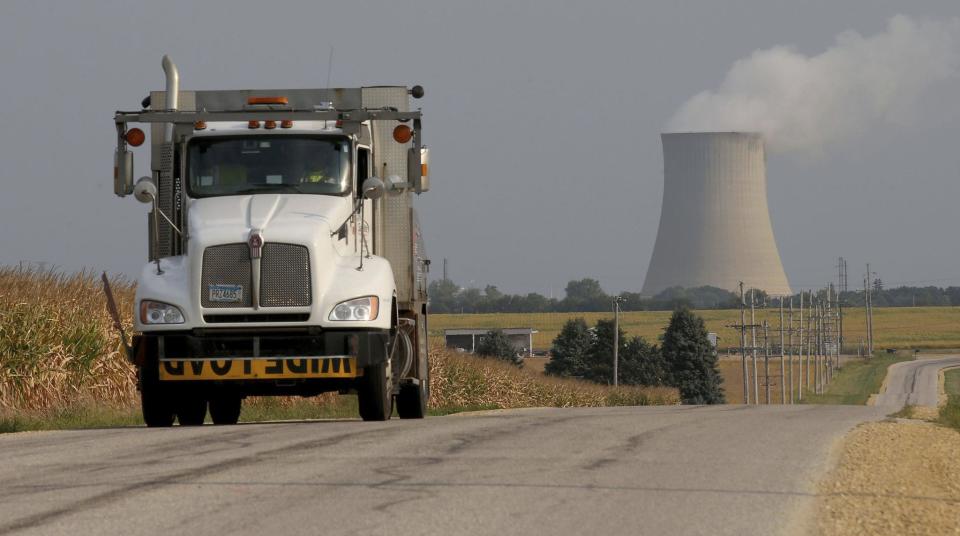Tech companies are turning to nuclear plants as AI increases demand for power

As the power demands of tech firms continue to grow, an increasing number are looking to nuclear-power sources to help them lighten the load.
The Wall Street Journal reports that the owners of approximately one-third of the country’s nuclear-power plants are working with companies to help power data centers. And a big source of that demand is the growing use of artificial intelligence. That’s raising concerns about the impact on the larger power grid, which has struggled some as the country experiences extreme weather conditions. (The grid is also considered a high-risk target of hackers.)
Amazon is particularly interested in nuclear power. In March, a subsidiary of the company bought a nuclear-powered data center in Pennsylvania. And a deal with a nuclear plant on the East Coast to supply power for Amazon Web Services is said to be near, the Journal reports.
Having the power that a nuclear facility can provide could spur the development of additional data centers, which are a critical component of AI systems. The data center Amazon purchased can receive up to 960 megawatts of electricity, which could power hundreds of thousands of homes.
The demand has led to big gains for the companies that own the plants. Shares of Constellation Energy are up 77% year to date and more than 123% in the past year. Vistra is up 129% year to date and 234% in the past year.
Experts have warned data centers could prove a big strain on the U.S. power grid, with the nine-year projected growth forecast for North America essentially doubling from where it stood a year ago. Last year, the five-year forecast from Grid Strategies projected growth of 2.6%. That number has since nearly doubled to 4.7%—and planners expect peak demand to grow by 38 gigawatts. In real-world terms, that’s sufficient to power 12.7 million homes.
“The U.S. electric grid is not prepared for significant load growth,” Grid Strategies warned.
This story was originally featured on Fortune.com

 Yahoo Finance
Yahoo Finance 